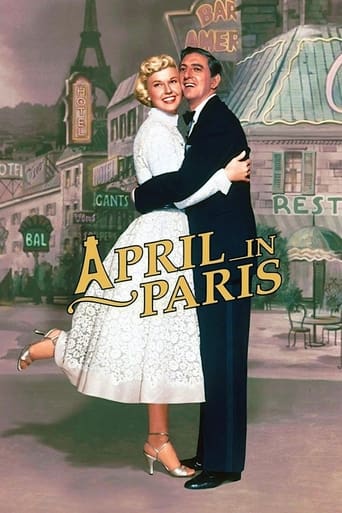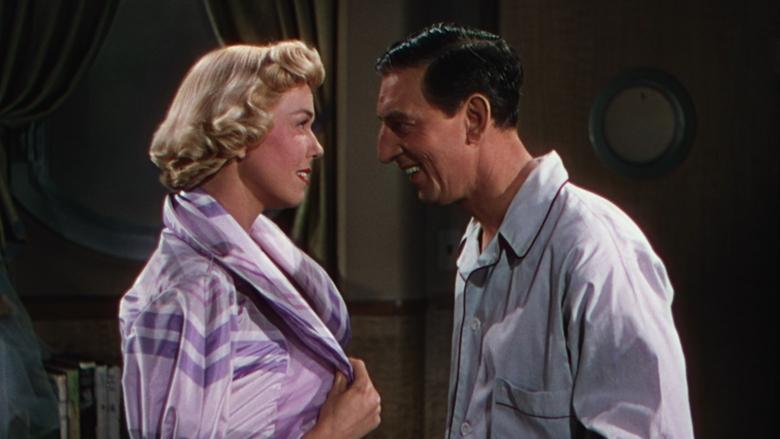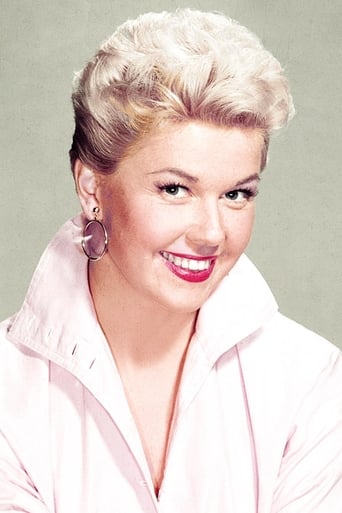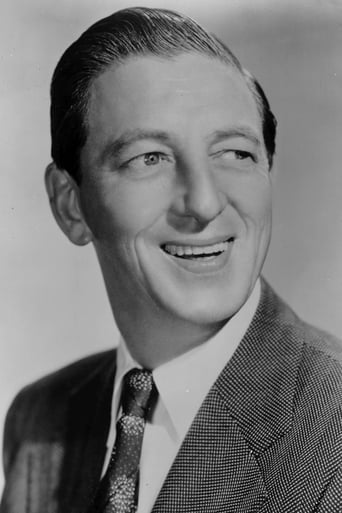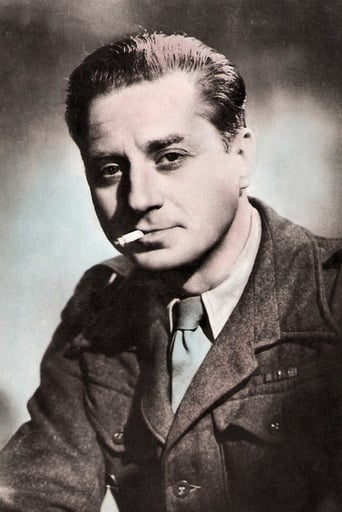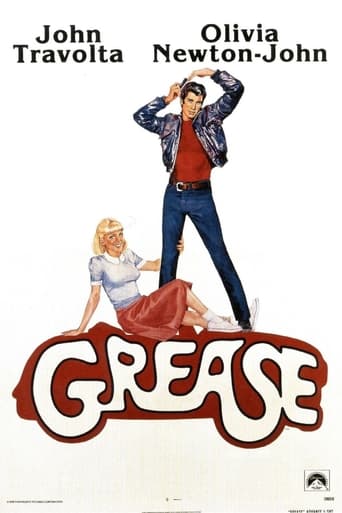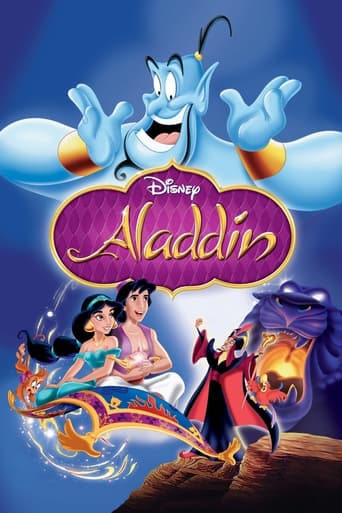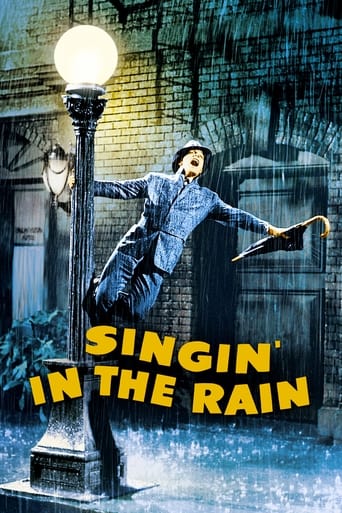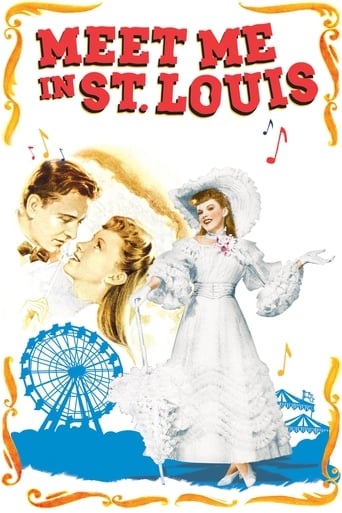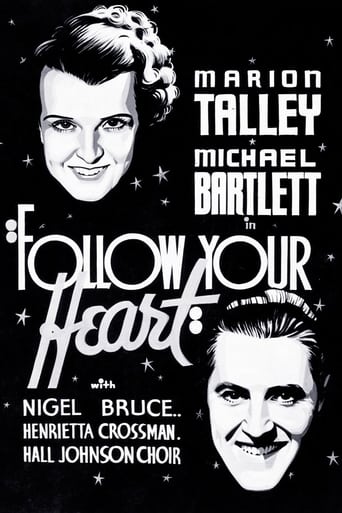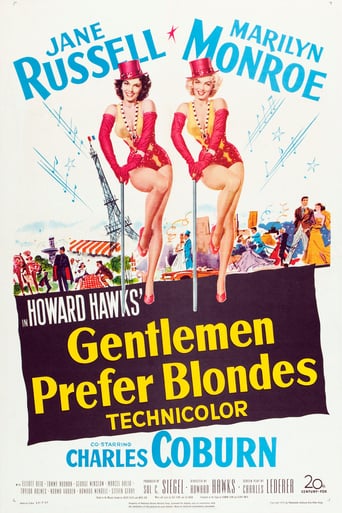April in Paris (1952)
A series of misunderstandings leads to a chorus girl traveling to Paris to represent the American theater, where she falls in love with a befuddled bureaucrat.
Watch Trailer
Cast


Similar titles
Reviews
Touches You
Pretty Good
Best movie ever!
Absolutely Fantastic
Copyright 3 December 1952 by Warner Bros Pictures, Inc. New York opening at the Paramount: 24 December 1952. U.S. release: 3 January 1953. U.K. release: 6 April 1953. Australian release: 29 April 1953. Sydney opening at the Regent. 9,057 feet, 100 minutes. NOTES: Number 42 at Australian ticket windows for 1953. While the film itself did not break into the ranks of the top thirty domestic box-office champions, Doris Day herself was voted number 7 of the nation's money-making stars of 1952 in a poll of all U.S. exhibitors conducted by The Motion Picture Herald. Ray Bolger was often berated by director Butler during shooting for his efforts to crowd Doris Day. Why the egotistic Bolger should try these tricks to overshadow his co-star is a mystery. He is extremely well treated throughout and often seems to be enjoying an undisputed lead. He even has an elaborate special effects solo in which he dances with himself as both a costumed Washington and Grant. COMMENT: Just because a movie was popular in all sections of the community (the carriage trade, the middle classes, the workers), doesn't mean critics have to look for faults. April in Paris far from deserves its so-so critical reputation. For at least three-quarters of the way through, the dialogue is not only bright and snappy with fast, witty comebacks, but even amusingly risqué. It's true the fountain runs a bit dry towards the close, and is therefore replaced by unlikely farce, but even this comparative wasteland is enlivened by a delightfully photographed production number for Doris Day. As for the songs, though they seemed no more than mildly pleasant at the time, they have improved with repetition. What's more, they're colorfully staged. Bolger's comic dancing, lithe and superbly timed, is such a joy, so cleverly choreographed in fact, one wishes there were more. Miss Day herself is a gem, whilst Dauphin makes the ideal spoof of a Frenchman. It all just goes to show how spoilt we were back in 1953. A film as pacy, as superbly photographed and never mind the expense, with the occasional inventive bit of direction, would cause a sensation if newly released today. (And some of the dialogue, amazingly frank for 1952, would also seem right at home).
"April in Paris" was originally a song from a 1932 Broadway musical revue entitled "Walk a Little Faster". Although the show was not a great success, the song proved highly popular and was recorded by a number of artists. The story goes that a friend of the lyricist E Y Harburg was inspired by its romantic picture of Paris in springtime to visit the French capital during that month but his holiday was ruined by bad weather. Upon his return to America he complained loudly to Harburg who replied "I wouldn't know. I've never been to Paris in April. I was there in June but I needed two syllables to fit the music". Some twenty years later the title came to the attention of someone in Hollywood who decided (as Hollywood producers sometimes do) that it was too good to waste on a mere song and that should also be a film entitled "April in Paris", and this is the result. "Pretty Woman" and "Sweet Home Alabama" are more recent examples of the same phenomenon. Despite the title, only the last few scenes actually take place in Paris; most of the action takes place in Washington, New York or on a transatlantic liner.Samuel Winthrop Putnam is a junior official with the US State Department. (His official title is Assistant Secretary to the Assistant to the Undersecretary of State). He has been tasked with organising American participation in an International Festival of the Arts in Paris. He intends to invite Ethel Barrymore to represent American theatre, but owing to a mix-up the invitation is sent to a Broadway chorus girl named Ethel Jackson. (It is never explained how this happens. It might have been more plausible if the heroine had a surname like "Barrington" or "Barrowman" rather than "Jackson"). This being a romantic comedy, Ethel and Winthrop have to meet on the way to Paris and fall in love. This being a romantic comedy, however, there also have to be a couple of obstacles to their love. The first is that Winthrop (or Sam, as Ethel prefers to call him) is engaged to Marcia, the pushy, snobbish daughter of his boss. The second is that Ethel seems to have a second admirer in the shape of French singer Philippe Fouquet, although it is eventually revealed that Philippe is actually a happily married family man. (He needs to keep this embarrassing secret hidden from the French public who like to believe that all French public figures, especially entertainers, are successful skirt-chasing lotharios). Doris Day can be something of an acquired taste and. I must admit, one I have never really been able to acquire, particularly in romantic comedy where she could come across as being just too sugary sweet to be true, as she does here. Ethel may be nicknamed "Dynamite", but she gives little hint of anything explosive hidden beneath her placid exterior. Ray Bolger seemed miscast as Winthrop; he would have been 48 in 1952, old enough to be Doris Day's father. This may not always have mattered in the fifties, when older man/younger woman love stories were the rule rather than the exception in the cinema, but in this particular film the age difference seems inappropriate. Winthrop, who has been with the State Department for ten years and still has hopes of promotion followed by a political career, is probably supposed to be in his early thirties, not his late forties. Bolger, moreover, did not have a particularly good singing voice, although on the evidence of this film he was clearly a talented dancer. Quite apart from the casting, the main problem with this film (which is, after all, supposed to be a musical) lies with the music. About the only songs which remain in the memory are the title song (written twenty years earlier) and "Auprès de ma Blonde", a traditional French folksong. The original songs written for the film itself are all very bland and forgettable. The film is also supposed to be a comedy, but much of the humour seems tame and contrived. (When the action finally moves to Paris, there is a running gag about the April weather not living up to Ethel's expectations; the scriptwriter must have heard that same anecdote about Harburg and his friend). "April in Paris" seems to have been popular when it first appeared in 1952, but it is one of those films which has lost much of its appeal over the years. 5/10
It is fascinating to consider the two leads of this film in terms of their movie and stage success. Doris Day became one of the biggest popular singers of her day, and then got a nice contract from Warner Brothers. Her image as the perpetually beautiful virgin who is your next door neighbor got pushed into our faces with films like ON MOONLIGHT BAY and TEA FOR TWO. But they were good films. The public never quite realized her good straight acting in films like LOVE ME OR LEAVE ME or THE MAN WHO KNEW TOO MUCH. Bolger was in films from the 1930s, but performances (even good ones) in films like ROSALIE were forgotten. Instead he lucked out early at MGM with the "Scarecrow" in THE WIZARD OF OZ, a role nobody who saw it ever forgot. He did well enough in the 1940s, but his best film (again with Judy Garland - THE HARVEY GIRLS) while showing him to advantage is just not as memorable. Bolger went back to Broadway, did WHERE'S CHARLIE - a tremendous popular hit, and then was lucky enough to get his performance on celluloid in the film version. He should have taken off. Instead, he makes this film - again a nice one - and does very little other films afterward (most notably the Disney version of BABES IN TOYLAND). A great dancer and entertainer but with two first rate performances on film he never got real film stardom.APRIL IN Paris was a decent musical for 1952, but as a follow-up to WHERE'S CHARLIE it lacks a degree of snap. WHERE'S CHARLIE was based on a classic English farce, CHARLIE'S AUNT, so it was really tried material that usually works The script for APRIL IN Paris was based on the Vernon Duke number that is a standard. But the rest of the score was not up to that standard, although a song and dance number that Day and Bolger do together in the galley of the French ocean liner ("I'm Going'to Ring the Bell Tonight!") is tuneful and bouncy. A later song between Claude Dauphin and Doris Day was also quite pleasant regarding Day's reaction to being in Paris. But neither of the latter two songs have ended up in the American songbook.The script is actually fairly typical for the period. Bolger is a rising figure in the State Department, who is engaged to Eve Miller (the daughter of Paul Harvey, Bolger's boss). Bolger has set up an international cultural festival in Paris wherein America would have Ethel Barrymore representing us. But by one of those ridiculous errors that are used to stimulate the plots of comedies (usually they can be explained away by simply owning up to them), the invitation is sent to chorus girl "Dynamite" Jackson (Day). Bolger tries to get it back but he is slowly attracted to Day. Still he has a difficult time convincing Harvey to replace Barrymore with Day to impress the French about our love of fun.(I was thinking about how within a couple of years Day appeared in YOUNG AT HEART with Barrymore - it might have been interesting to have the famous actress appear for a scene or two reacting to this silly error.)Bolger is trying to balance between his career in the diplomatic service (which may lead to a political career) and his growing affections for Day (who is against the straight jacket approach of American Diplomacy forced down her throat by Harvey). Complicating matters is the side antics of Claude Dauphin, who has to sneak back to France because of a diplomatic problem that Bolger would not help him with - Dauphin is working as a steward on the ocean liner, and is unwilling to keep quiet with the crew or with the passengers, including Doris. Eventually Bolger and Day decide to be married by the Captain of the ship, and Dauphin is their witness. But the Captain is a fraud, and so is the marriage. So Dauphin has to sabotage the wedding night as the nice Day and prickly Bolger are not legally entitled to sleep together. It is quite silly, but it has some amusing moments when Harvey shows up and threatens Bolger to face up to his career responsibilities or face the end of his career. Harvey reading the diplomat's rule book to Bolger under an umbrella in a flooding cabin (don't ask) is a sight to see!It ends satisfactorily. But it is not as good as WHERE'S CHARLIE was, and as a result it was not a good follow up to that film. Maybe if Bolger's follow up had been his "Barnaby" in BABES IN TOYLAND the film career problem would have been settled more satisfactorily.I have known only one person in my life who went far in the State Department. He was the smartest fellow in my high school graduating class, and he would rise to the post of Assistant Secretary of State for Far Eastern Affairs. He still is a rather big wheel in his current job. I dedicate this review to him.
Sorry folks, I love Ray Bolger's work but the one thing he ain't is a leading man. Maybe if you pretend he's the last man on earth, this romantic plot might work but come'on now !Here's a movie that exists simply to showcase the title song which was a big hit for the Basie Band the year before (1951). And some pretty nifty singing and dancing save it from being a total disaster. However, the story line is pathetic, even by 1952 musical comedy standards. And the other songs are equally as forgettable as Evening In Paris cologne. The dialogue embarrasses the stars, Day & Bolger. Only Claude Dauphin's Boyeresque charms keep his character three dimensional.So, how to enjoy this movie on video ? A.) Fast forward through all the dialogue...B.) Surrender yourself to Doris Day's vocals and Ray Bolger's loose-limbed footwork. And don't miss Dauphin's hilarious take on a rain-soaked, windswept reprise of "April In Paris"...C.) Finally, keep a couple of bottles of Cabernet chilled and handy.Bob Raymond

